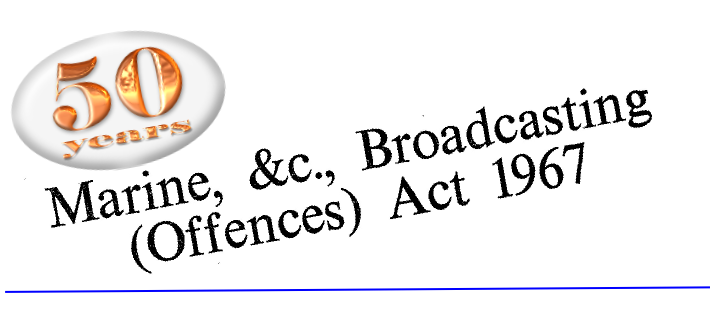© 2014-

ARGUMENTS AGAINST OFFSHORE RADIO
Many arguments were put forward for outlawing the offshore stations, but essentially they followed variations of one or more of the following themes:-
1. The offshore stations 'pirated' frequencies and transmitter powers not allocated to them under international agreements, in particular the 1948 Copenhagen Convention and (occasionally) caused interference to legitimate stations using these frequencies. Britain was a signatory to various international agreements and it was therefore the Government's responsibility to uphold its obligations.
As a supplementary to this the international frequency allocation argument was also used to refute any suggestion that the offshore stations should be invited on land or that a network of commercial stations could be established to compete with the BBC. "The frequencies are not available for use in Britain" was the standard reply to any proposals by 'commercial' or 'local' radio pressure groups to establish stations on land.
2. The offshore stations' transmissions interfered with maritime, ship-
3. The offshore stations avoided paying copyright fees for the recorded music they broadcast and did not observe any 'needletime' restrictions on the number of hours of such music transmitted each week -
In addition there was an ‘Establishment’ attitude against the offshore stations, particularly from the BBC whose management had never seen or acknowledged the need to provide a popular music service (the reason offshore stations were established in the first place) and more generally didn’t want competition from any other broadcasters.
Also the political ideology at the time from the Labour government (who were in power for most of the years the offshore stations were on the air in the 1960’s) was vehemently against private enterprise generally and anti commercially funded radio broadcasting in particular. Radio was considered too important a resource to be given over to ‘flipant’ content (i.e. pop music) and private enterprise operators. The argument was advanced that radio broadcasting should be the preserve of a public sector organisation (the BBC) over whom the Government could exert considerable influence.






Ground
Back to







